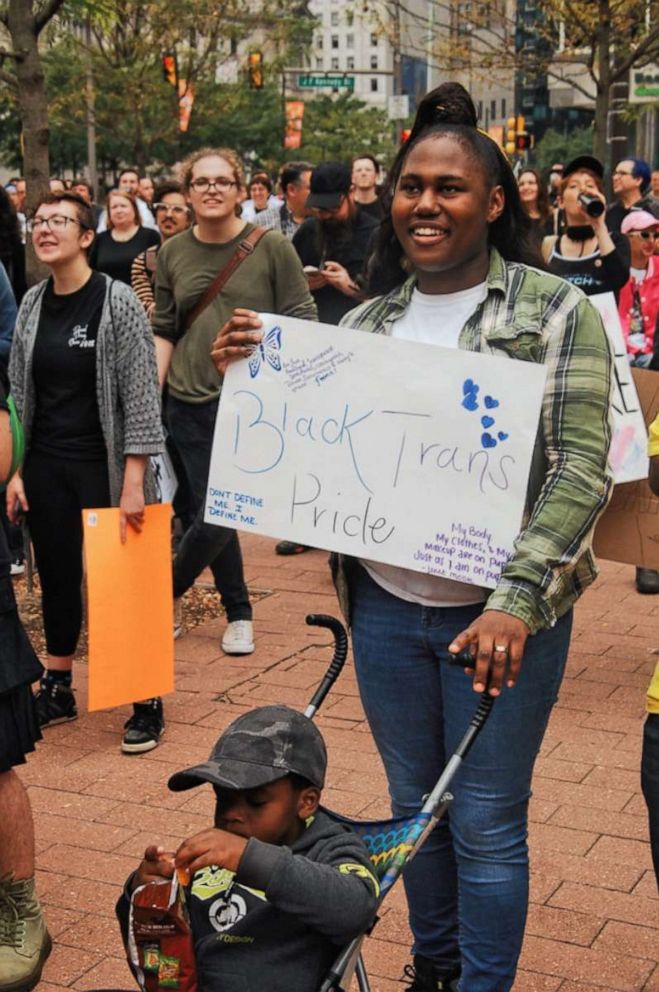'Have to be heard': Advocates speak out about violence against black transgender women at Black Pride Festival
Concerns were raised about increased death rates of black transgender women.
This year marks the 22nd anniversary of the NYC Black Pride Festival, a five-day event meant to celebrate the cultural and historical development of the black and Latino LGBTQ+ community.
While one specific event during the festival, called "The Health as a Human Right: Effects of Systematic Oppression," served as an outlet to provide public health resources and services to black and Latinx LGBTQ+ people, a topic that frequently came up during the event was the rights of black transgender women.
Jason Walker, HIV/AIDS Campaign Coordinator for VOCAL-NY, along with other panelists, voiced concerns about the increased death rates of black transgender women.
“We come from a people who have resisted white supremacy, imperialism, colonialism, and chattel enslavement for a long time. What does that mean in the context today when we see a rise or increase in white supremacy?" Walker said. "How do we tap back into this legacy of resistance? How do we tap back into this legacy of standing up for Black trans women when they are being murdered?"
According to an analysis from VICE News that used statistics from the Human Rights Campaign, since 2014, approximately 80% of murders against transgender women were committed against black transgender women.
In 2019 alone, there have been 16 transgender people killed, according to the Human Rights Campaign.
Those deaths include Denali Berries Stuckey, 29, who was fatally shot on the side of a road in North Charleston, South Carolina, and Kiki Fantroy, who was gunned down in Miami, according to ABC Miami affiliate WPLG.
In Dallas, Muhlaysia Booker, 22, was found shot to death in Dallas and police were investigating whether her death was connected to that of Chynal Lindsay, another black transgender woman.
According to Human Rights Campaign, "fatal violence disproportionately affects transgender women of color, and that the intersections of racism, sexism, homophobia, biphobia and transphobia conspire to deprive them of employment, housing, healthcare and other necessities, barriers that make them vulnerable."

Michael Roberson, a prominent public health activist for the black LGBTQ+ community, remains hopeful about the future actions that allies can take to mitigate the injustices taking place, particularly against black transgender women.
"This is a moment where we need to sit still and be quiet because their [black transgender women] voices have to be heard," he said. "In fact, it was their voices and bodies that created this space called 'freedom' for us, or this 'freedom work.' And so we have to atone for our sin in invisibilizing them out of it and using our privilege to do so.”
The Black Pride event comes during an important time for African American people in the U.S.
“It’s an interesting year because it calls the intersection of a bunch of anniversaries. We know in June, we celebrated the 50th anniversary of the Stonewall Riots. We’re also celebrating the 150th anniversary of the first Drag Ball,” Roberson said. “It also happens to be the month, 400 hundred years ago the very first Africans were brought into bondaged slavery in Jamestown, Virginia. And so this is that anniversary.”
AIDS Healthcare Foundation, Amida Care, Gay Men's Health Crisis and HIV Stops with Me were part of the eight organizations sponsoring the event at a local NYC LGBT community center. Many encouraged the attendees to seek support, know their status and learn about proper medical help, if needed.
According to the National Center for Transgender Equality, transgender people are subject to the most discrimination in all settings for medical care, making this support system particularly valuable.

